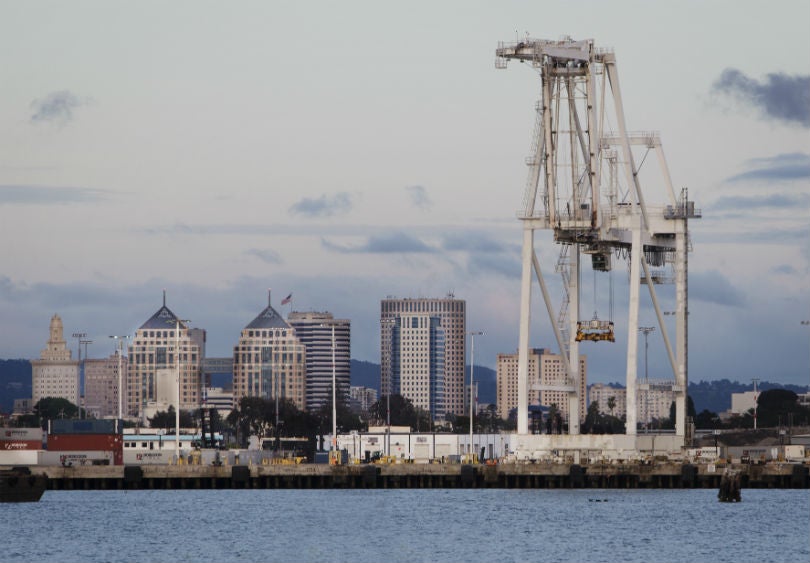Defending San Francisco Bay Area Communities from Polluters
Communities in California are fighting back against a proposed coal export terminal that would burden their communities with additional pollution and health impacts.

This page was published 9 years ago. Find the latest on Earthjustice’s work.
Earthjustice is proud to partner with organizations that are challenging unjust and polluting infrastructure projects that threaten the wellbeing of their communities, the land and wildlife. In Oakland, California, Earthjustice is working with the Asian Pacific Environmental Network (APEN) and others to fight against a proposal to export coal through a terminal on the Oakland waterfront. APEN organizes local Asian community members to advance an agenda of environmental, social and economic justice. We spoke with Vivian Yi Huang, Campaign and Organizing Director for APEN, to learn more about how coal and other polluting industries impact the communities APEN represents.
Earthjustice: How did you first get involved with APEN?
Vivian Huang: Growing up, I saw firsthand the challenges immigrant communities face. Most of my career has been focused on how to make our social systems more supportive, equal and just for immigrant communities. APEN is one of the leading organizations focusing on that work, especially for Asian Pacific Islander communities. We are focused on environmental justice, and we are also connected to a broader range of social justice issues. Our members face not only toxic pollution from fossil fuel sources; they’re also experiencing poverty, language access issues and challenges in accessing health care. I wanted to be part of an organization building power by amplifying voices and developing leadership within our communities.
E: West Oakland already has a huge amount of heavy industry, including shipping, freeway infrastructure and train tracks. How do you think transporting coal through Oakland would impact residents?
VH: We organize in both Richmond and Oakland, places where people are already facing a host of environmental health impacts. Oakland’s Chinatown is surrounded by different freeways, due to the historical racism that did not include Chinese residents in development planning. In Richmond, California, many folks are already experiencing hazardous health effects from the Chevron refinery that has been polluting the surrounding community for decades. Transporting coal through Oakland would add to the environmental pollution and health impacts that already put these Bay Area communities at risk. Our members see the larger picture of what’s happening with climate change and how fossil fuels contribute to climate change. They see that climate change is not being addressed in a way that puts frontline communities at the center of leadership and the center of solutions.
E: What was the community’s reaction when the developer revealed that the proposed bulk terminal at the Oakland waterfront would export coal, despite earlier assurances that coal would not be a part of the project mix?
VH: We had previously supported the project because we believe in the importance of bringing quality jobs to Oakland and want to make sure that our local residents get access to them. But we don’t want those jobs to come at the expense of the health of workers or the people living in surrounding communities, or the health of people living across the world in our home countries like China.
Our members have always been very clear that they do not want trains carrying coal through their neighborhoods because there is so much pollution coming from the coal dust. There is a cumulative impact from the many environmental toxins that community members in the San Francisco Bay Area are facing. We have been keeping our members updated on the campaign as it moves forward. People are hopeful that the large amount of opposition to coal from both community members and elected officials will prevent this from happening.
Learn more about the fight to stop coal exports in Oakland.
Reporting by Heather Kathryn Ross and Bekah Olstad.
The California Regional Office fights for the rights of all to a healthy environment regardless of where in the state they live; we fight to protect the magnificent natural spaces and wildlife found in California; and we fight to transition California to a zero-emissions future where cars, trucks, buildings, and power plants run on clean energy, not fossil fuels.
Established in 1987, Earthjustice's Northwest Regional Office has been at the forefront of many of the most significant legal decisions safeguarding the Pacific Northwest’s imperiled species, ancient forests, and waterways.